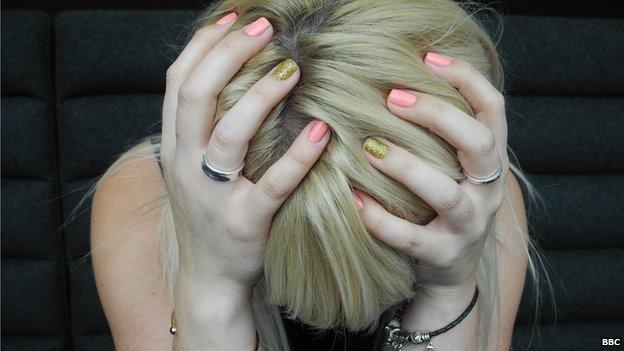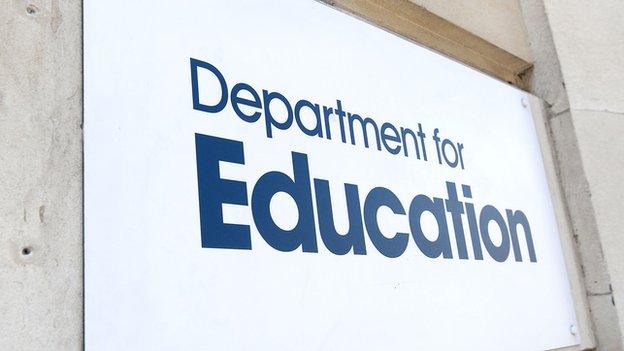Care leavers placed in ‘unsuitable’ accommodation
- Published

There are concerns that many care leavers are being placed in unsuitable accommodation
Local councils in England are housing vulnerable teenagers in bed and breakfasts despite new rules restricting the practice.
BBC Radio 4's File on 4 programme found thousands of young care leavers are placed in inappropriate housing.
In some areas less than half are living in "suitable" accommodation, a new analysis of official data shows.
The Department for Education (DfE) said young people leaving care were now receiving more help than ever before.
While 78% of care leavers across England are judged to be living in places which are safe and which meet their needs, according to official data for 2013-14, local figures show the number is much lower in many areas.
Of England's 151 local authorities, 15 told a DfE annual census, that no more than two thirds of young care leavers were living in accommodation which met official criteria on what was "suitable".
'Very vulnerable'
Jenny Clifton, Principal Policy Adviser for Safeguarding at the Office of the Children's Commissioner, told File on 4 new rules limiting the use of bed and breakfast accommodation to emergencies were being breached.
The Children's Commissioner recently interviewed more than 350 care leavers for research to be published in July.
Ms Clifton said the findings showed homeless young people were very much at risk.
"We do know that some of them are in bed and breakfast although there is guidance, which makes it quite clear that should only be in an emergency.
"There are very vulnerable people being placed in highly unsuitable environments and inadequately inspected environments as well," she explained.

Proportion of care leavers in suitable accommodation (by council)
Wokingham 40%
Kent 42%
Tameside 48%
Portsmouth 50%
Manchester 57%
Oxfordshire 57%
Leicestershire 61%
Hounslow 62%
Doncaster 64%
Dorset 64%
Worcestershire 64%
Source: Department for Education

Government guidance, external introduced in January, says bed and breakfast accommodation should only be used in emergencies and for no more than two days.
The guidance also requires homeless 16- and 17-year-olds to be treated as "looked after" children by local authorities and to receive a range of services, including personal advisers and support with accommodation and education.
In Kent, where just 42% of care leavers are deemed to be in suitable accommodation, File on 4 met a homeless teenager who was housed in a bed and breakfast for two weeks earlier this year.
"Alice", not her real name, had a troubled childhood and spent periods in respite care. In January she was forced on to the streets after a placement with a family member broke down, and she asked for help with housing.
After a fortnight, in which she felt increasingly isolated, she took an overdose. Only then did Kent County Council place her in suitable accommodation, first with a foster carer and then with a voluntary organization called Porchlight which provides sheltered housing for vulnerable young people.
"It wasn't very nice," she said. "I was the youngest one there, there were homeless people lived there, and there were drug addicts and not nice people. They were all men, I think I was the only girl that was there."
Councils are required to have processes in place to ensure 16- and 17-year-olds cannot slip through the net and are immediately put in touch with social workers if they present themselves at housing departments as homeless.
In a statement, Kent County Council said its social services department had not immediately been made aware of Alice's plight by the district council which had placed her in the bed and breakfast - but it had acted to help her as soon as it found out.
"At this point assessments were undertaken which confirmed the need for the county council to take on care responsibilities, whereupon she was supported in moving promptly to more suitable accommodation.
"Negotiations are ongoing with the relevant district councils to establish more consistent processes which recognise and prioritise the needs of care leavers in gaining access to social housing."
'Not suitable'
Alison O'Sullivan, president of the Association of Directors of Children's services, admitted vulnerable young people like Alice should never be placed in bed and breakfast accommodation.
"There are occasions in a crisis where for very short periods of time that can be the only option but it is not desirable and should only really be used in extreme circumstances.

The Department for Education says it is committed to improving care leavers' lives
"Where very young people are placed in bed and breakfast in emergencies it's important the local authorities do visit that accommodation and check for themselves that it is suitable for use in a crisis."
Ms Clifton said financial restrictions on councils would exacerbate an already difficult situation.
"We have a lot of evidence from young people themselves that they are living lives which are quite difficult.
"Many leave care too soon and don't get the ongoing support that they need, Local authorities have had to make a lot of cuts, and the present position is that services for care leavers is very variable across the country."
In a statement, the DfE said it was committed to improving the lives of care leavers.
"This is evidenced by the comprehensive and far-reaching support we have put in place since 2010, which means young people leaving care are now receiving more help than ever before.
"However there is always more than can be done to help this vulnerable group of young people and we will continue to look at this over the coming months".
For more on this story listen to File on 4 on BBC Radio 4 at 20:00 on Tuesday 2 June.